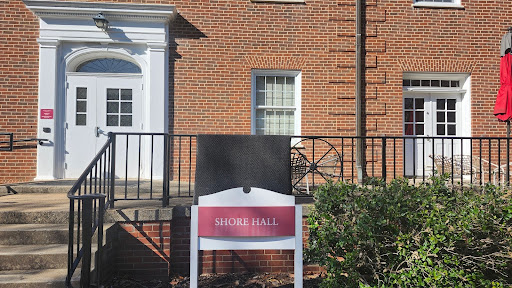The time has come. The pressure is on. Get ready for some big changes on campus.
Guilford’s judicial process is known for being rooted in restorative justice. However, no system is perfect. That is why every five years, the student body gets the opportunity to review and suggest changes to the judicial process.
This year, the Center for Principled Problem Solving along with their Principled Problem Solving Scholars are spearheading the reform.
“They identified collectively possible issues on campus that they saw as needing attention, correction or addressing,” said Mark Justad, Center for Principled Problem Solving director.
Their biggest hope is to eliminate a sense of animosity between students and Public Safety.
“The thing that we saw that needed to be addressed the most was the way that public safety officers and resident advisors communicated with students when they were being documented,” said PPS Scholar and junior Faris El-Ali.
To fix the issue, the scholars hope to implement non-violent communication training for public safety officers and resident advisors alike.
“It’s better to ask ‘how can we help you?’ rather than ‘here’s a crime, here’s a punishment,’” said senior Eamon Deeley-Wood.
PPS scholars also hope to administer a survey for students after they go through the judicial process. It will ask about their experiences with judicial advocates and the Community Accountability Project process in general.
“I think (a survey) is perfect,” said Deeley-Wood. “I think that’s really in-line with being a Quaker community to give everyone a say.”
The PPS scholars are also working on creating cards that would be given to students who were documented by Public Safety. The cards will include information to help them through the judicial process, such as the numbers of judicial advocates on campus. This allows the accused to get student support as they go through the process.
The biggest change expected to come from this year’s reform is the new jury duty lottery.
In essence, students would be selected from a lottery to serve on a panel of jurors. They will determine sanctions for students who committed Level 1 violations of the Student Code of Conduct. The goal is to have most students serve jury duty before they graduate.
“Students were given the opportunity to tell people a little bit more about themselves before being sanctioned,” said El-Ali of his experience with CAP jury duty. “Creating that personal connection before actually going through the process of sanctioning and reflecting really allows students to see that the community is invested in them.”
The jury duty reform would open up the panel to the entire community and give everyone an opportunity to participate in the other side of the judicial process.
“We’re really trying to increase community involvement with the process because right now there are a very limited amount of students and faculty who are involved in the process,” said El-Ali. “All they have to do is go through a one hour training, and they’ll be able to sit in on and participate in on the Community Accountability Project process.”
“It’s the nature of the beast, and it’s the nature of life that there is always room for improvement and reform,” said Eamon Deeley-Wood.





